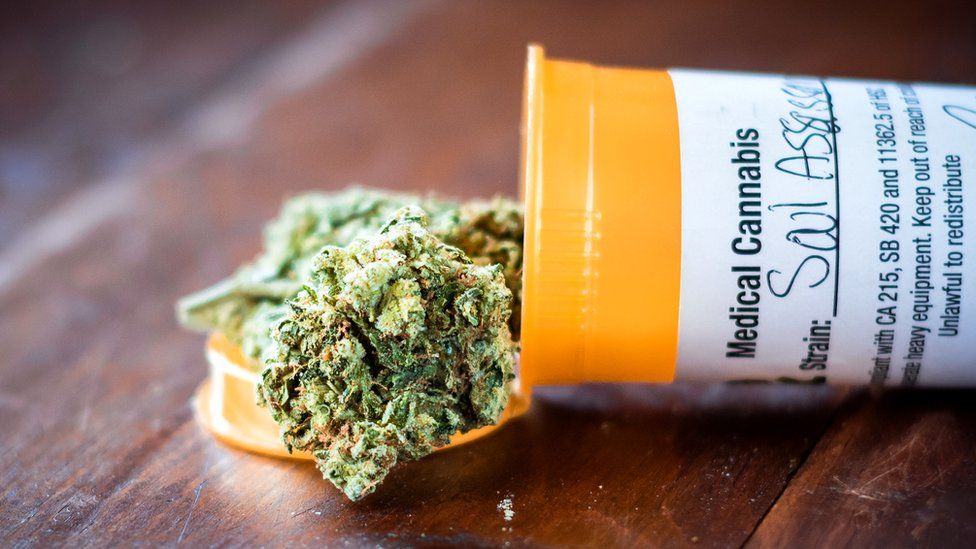Get Your Medical Marijuana Card Clinton MS Quickly and Easily
Get Your Medical Marijuana Card Clinton MS Quickly and Easily
Blog Article
Shedding Light on What Medical Marijuana Can Cure: a Thorough Evaluation of Its Therapeutic Properties
In current years, there has actually been a growing interest in the therapeutic potential of medical cannabis. While unscientific proof abounds, a detailed evaluation of the clinical information regarding the effectiveness of clinical marijuana in treating these problems is warranted.
Chronic Pain Monitoring
Chronic discomfort monitoring continues to be an important aspect of healthcare, demanding a thorough technique for efficient therapy. In the last few years, clinical cannabis has emerged as a prospective healing choice for people struggling with chronic discomfort conditions. The endocannabinoid system, which plays an essential role hurting modulation, has been targeted by cannabis-based therapies to enhance and reduce signs high quality of life for clients.

Moreover, medical cannabis provides an encouraging choice for clients that experience unbearable negative effects from conventional pain medications. Its capability to attend to discomfort through a different mechanism makes it an important addition to the toolbox of therapies readily available for persistent pain monitoring.
Epilepsy Therapy Possible
Medical marijuana has shown promising capacity in the therapy of epilepsy, providing an unique restorative method for managing seizures in clients. Epilepsy is a neurological problem characterized by recurrent seizures, influencing people of any ages. Standard treatments for epilepsy consist of antiepileptic medications, yet these drugs may not be effective for all individuals and can have considerable side effects.
Research study on the use of clinical cannabis for epilepsy has actually revealed motivating results. Cannabidiol (CBD), a non-psychoactive substance found in marijuana, has been specifically highlighted for its anticonvulsant properties. Studies have revealed that CBD can lower the frequency and intensity of seizures in individuals with treatment-resistant forms of epilepsy, such as Dravet disorder and Lennox-Gastaut disorder.
Additionally, the FDA has accepted a CBD-based medicine, Epidiolex, for the therapy of seizures associated with these serious kinds of epilepsy. This landmark highlights the growing recognition of clinical cannabis as a valuable therapeutic alternative for handling epilepsy and provides hope for people who have not reacted well to traditional treatments.
Nausea Or Vomiting Relief Advantages
The reduction of nausea via making use of cannabis has been increasingly identified for its therapeutic advantages in different clinical conditions. Nausea and vomiting are typical signs experienced by patients undertaking radiation treatment, those with stomach disorders, and people with persistent discomfort problems. Medical cannabis, with its active compounds such as THC and CBD, has actually revealed pledge in providing remedy for nausea.

In addition, medical cannabis uses an all-natural option for individuals that do not react well to typical anti-nausea medicines or who experience extreme adverse effects from these medicines. Individuals undertaking chemotherapy, specifically, have actually reported substantial renovations in their lifestyle when utilizing marijuana to manage nausea. As research study in this area remains to grow, clinical marijuana is significantly being considered as a useful choice for queasiness relief in numerous medical setups.
Anxiousness Reduction Results
Studies have shown the potential of cannabis in reducing anxiousness signs with its communication with the endocannabinoid system. The endocannabinoid system plays a vital duty in regulating feelings, including anxiousness, by maintaining homeostasis in the body. Cannabinoids in cannabis, such as THC and CBD, interact with the endocannabinoid receptors in the mind, specifically the CB1 and CB2 receptors, to regulate anxiety-related reactions.

Patients with conditions like generalised anxiousness disorder (GAD), social anxiousness problem, and trauma (PTSD) may gain from the anxiolytic residential properties of marijuana (Medical Marijuana Clinic Clinton MS). Additional research study is needed to figure out ideal dosages, delivery approaches, and long-term results on stress and anxiety monitoring.
Possible for Swelling Control
With its known anti-inflammatory residential or commercial properties, marijuana has revealed promise in possibly controlling inflammation within the body. Inflammation is the body's natural response to injury or infection, but when it comes to be chronic, it can contribute to numerous conditions such as arthritis, inflammatory digestive tract condition, and even heart illness. Study suggests that the cannabinoids found in marijuana, such as THC and CBD, can aid manage the immune response and reduce swelling.
Research studies have actually shown that cannabis can engage with the endocannabinoid system, which plays an important function in controling inflammation. By targeting the cannabinoid receptors, marijuana compounds can regulate the immune action, leading to a decline in swelling degrees. This makes marijuana a potential prospect for taking care of inflammatory problems where standard therapies have actually fallen short.
In addition, cannabis-derived products like CBD oil have gotten appeal for their anti-inflammatory properties, with several people utilizing them as a natural treatment for read more problems related to inflammation. While even more research is needed to fully recognize the mechanisms behind visit homepage marijuana's anti-inflammatory impacts, present searchings for reveal encouraging results for the possible use medical marijuana in managing swelling.
Final Thought
In verdict, medical marijuana has shown encouraging healing buildings in taking care of chronic pain, treating epilepsy, soothing nausea, lowering anxiousness, and managing swelling. Its possible benefits in different medical conditions highlight the value of further research study and exploration into its medicinal usage. The proof recommends that medical cannabis can be an important alternative therapy option for people seeking relief from a series of conditions and symptoms.
In recent years, clinical marijuana has arised as a potential healing choice for people enduring from chronic pain conditions.Clinical cannabis has revealed appealing capacity in the therapy of epilepsy, offering a novel therapeutic method for handling seizures in individuals. As research study in this area proceeds to expand, clinical marijuana is increasingly being considered as an important option for nausea relief in different medical settings.
In final thought, medical cannabis has shown appealing therapeutic properties in managing chronic pain, treating epilepsy, eliminating queasiness, decreasing anxiousness, and regulating inflammation. The proof suggests that clinical marijuana could be an important alternative therapy alternative for people looking for relief from an array of symptoms and conditions.
Report this page